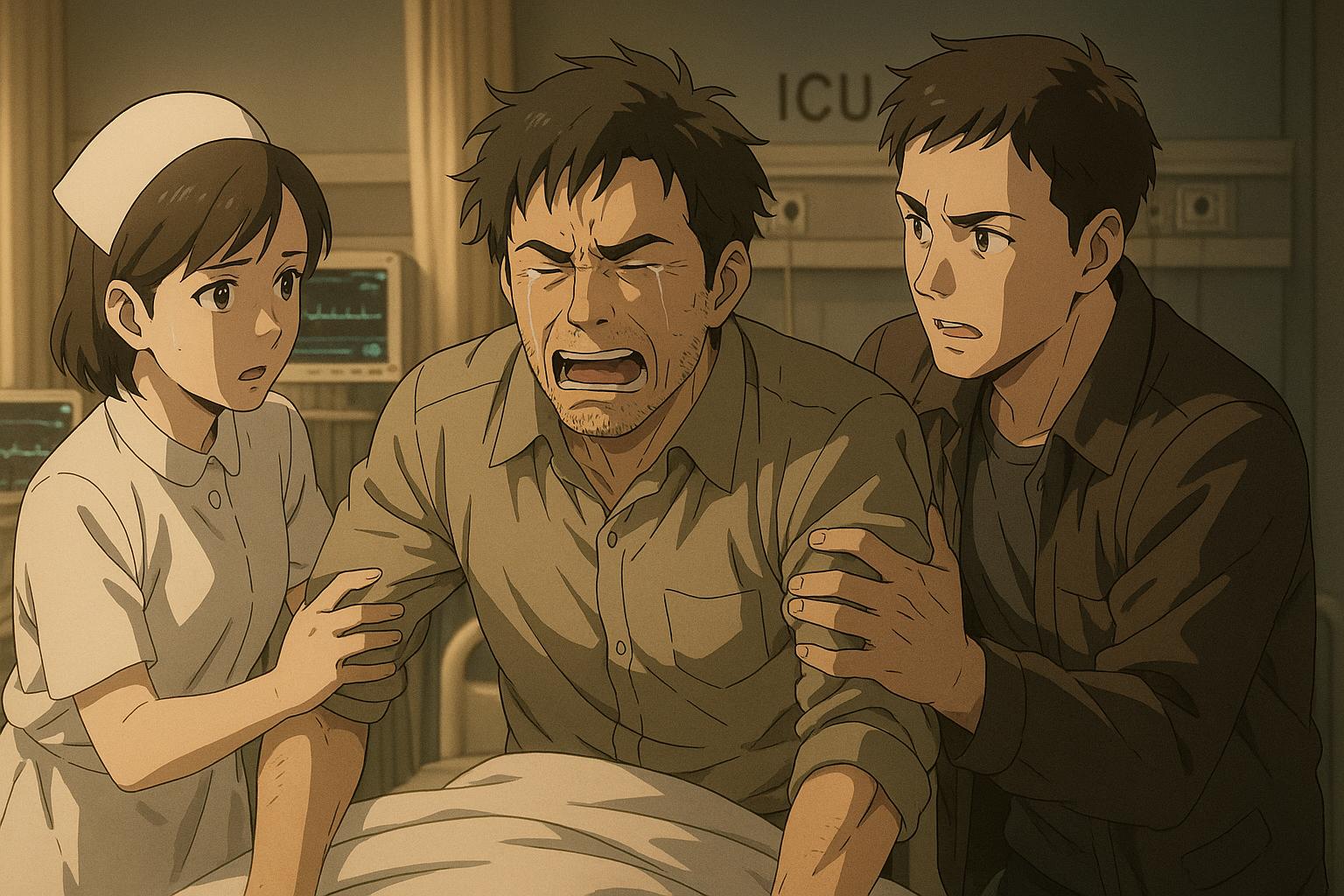A tragic incident that unfolded in August 2019 has landed a devastated father in a legal struggle, highlighting the tensions between parental rights and medical decisions in critical care. Dr. Rashid Abbasi, an NHS consultant, was forcibly removed from the bedside of his six-year-old daughter, Zainab, as hospital staff prepared to withdraw life support. Graphic footage captured by police body cameras depicted Dr. Abbasi being physically restrained and dragged from the children's intensive care unit, a scene that sparked widespread outrage and debate surrounding medical ethics and police intervention in healthcare settings.
Zainab had been diagnosed with Niemann-Pick disease, a severe genetic condition which severely limited her life expectancy. Over the years, her parents had been embroiled in a protracted dispute with hospital staff regarding her treatment, insisting that further medical intervention could prolong her life. This dispute came to a head when doctors informed the Abbasis that Zainab was dying and life support would soon be withdrawn. Facing this heartbreaking reality, Dr. Abbasi's reaction was rooted in parental instinct and desperation; he sought more time and care for his daughter.
The severity of the situation escalated as hospital personnel sought police assistance, citing claims that Dr. Abbasi was acting violently and aggressively towards medical staff. Northumbria Police responded, characterising their intervention as a necessary measure to ensure the safety of everyone present in the ward. While Judge Recorder James Murphy later ruled against Dr. Abbasi’s claims of wrongful arrest and assault, labelling him as a 'menace' during the incident, the court’s conclusions have been met with widespread criticism and disbelief from the public and legal experts alike.
Subsequent to his removal, Dr. Abbasi experienced a heart attack, underscoring the physical toll that the incident took on him during an already unbearable emotional time. The pain of losing a child is compounded by the experience of being denied the right to say goodbye peacefully—a notion that resonates deeply with many who have faced similar situations. Dr. Abbasi described the judgement that characterised him as a menace as “unwarranted” and “hurtful,” noting that officers admitted in court they did not perceive him as intimidating prior to the intervention.
As discussions continue regarding this incident, wider implications are being examined concerning parental rights in making end-of-life decisions for children. The responses from the hospital trust indicate that involving the police was considered a last resort to maintain a secure environment for patients. However, the degree of force used and the methods employed have raised ethical and moral questions about proper protocols in hospitals, especially in emotive situations like that of the Abbasi family.
This harrowing case has not only drawn attention to the medical and ethical dilemmas surrounding paediatric critical care but has also ignited a discourse on how parents are viewed and treated in moments of immense grief. With the Abbasis now considering an appeal against the legal decision, the episode serves as a stark reminder of the delicate balance between medical authority and parental rights at some of the most vulnerable times in families’ lives.
As advocates and legal experts continue to voice their perspectives on this difficult subject, the Abbasi family finds themselves navigating the aftermath of their loss amid calls for greater compassion and understanding in healthcare practices. Whether changes will occur in how hospitals handle such sensitive situations remains to be seen.
Reference Map:
- Paragraph 1 – [1], [2], [4]
- Paragraph 2 – [3], [5]
- Paragraph 3 – [6], [7]
- Paragraph 4 – [2], [3]
- Paragraph 5 – [1], [4]
Source: Noah Wire Services
